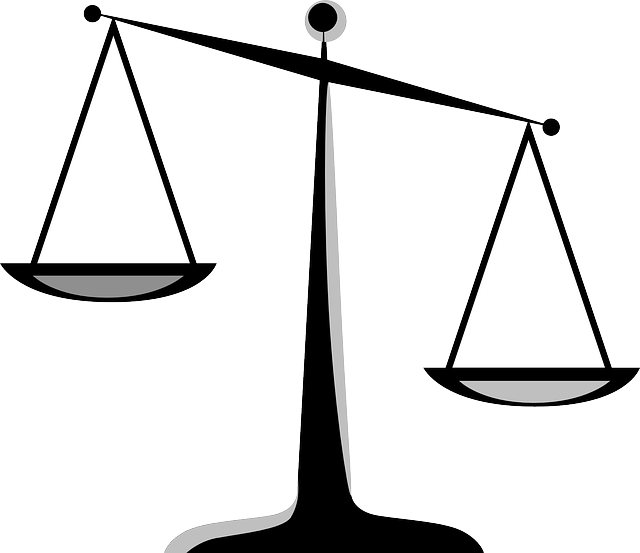Healthcare compliance experts interpret complex SEC rules, guiding organizations through regulatory challenges to ensure ethical practices and mitigate legal risks. The SEC's enforcement powers protect investors from fraud and maintain market integrity by investigating violations like insider trading and corporate misconduct. Compliance strategies, leveraging data analytics and AI, aid in identifying potential SEC violations, fostering transparency and accountability in healthcare and beyond.
In the intricate landscape of healthcare, compliance experts play a pivotal role in navigating complex regulations. This article delves into the essential services they provide, focusing on securities law enforcement. From understanding the intricate web of rules to implementing strategies that prevent legal pitfalls, these specialists ensure fair markets. We explore the Securities and Exchange Commission (SEC)’s crucial role in protecting investors through advanced detection techniques for insider trading, emphasizing the vital contribution of compliance experts in the dynamic world of finance.
- Navigating Complex Securities Laws: The Expertise of Compliance Specialists
- Ensuring Fair Markets: SEC's Role in Protecting Investors
- Compliance Strategies: A Key to Avoiding Legal Pitfalls
- Uncovering Insider Trading: Advanced Detection Techniques Used by Experts
Navigating Complex Securities Laws: The Expertise of Compliance Specialists
Navigating Complex Securities Laws requires a keen understanding of regulations and an expert hand to ensure compliance. This is where healthcare compliance experts shine. They demystify the intricate web of SEC guidelines, vital for maintaining ethical practices in the industry. With the Securities and Exchange Commission (SEC) playing a crucial role in securities law enforcement, these specialists act as navigators, guiding organizations through complex territories.
Their expertise extends to white-collar defense strategies, enabling companies to achieve extraordinary results. By constructing robust compliance programs tailored to each organization’s unique needs, they safeguard against legal pitfalls and protect the interests of all stakeholders. This unprecedented track record of success is a testament to their ability to stay ahead of evolving regulations, ensuring businesses operate with integrity in an ever-changing market.
Ensuring Fair Markets: SEC's Role in Protecting Investors
The Securities and Exchange Commission (SEC) plays a pivotal role in ensuring fair markets within the financial industry by enforcing securities laws. Their primary focus is on protecting investors from fraudulent activities, ensuring transparency, and maintaining integrity in corporate disclosures. The SEC’s enforcement powers are extensive, allowing them to investigate and penalize companies and individuals who violate federal securities laws. This includes cases involving insider trading, accounting fraud, and material misrepresentations in prospectuses or financial reports.
By acting as a watchdog over publicly traded companies, the SEC helps maintain public trust in capital markets. Their work is crucial in preventing corporate misconduct that could lead to severe economic consequences for investors. Through its general criminal defense division, the SEC works with both corporate and individual clients, offering guidance and support to avoid indictments. This proactive approach not only deters potential wrongdoings but also ensures a more robust and fair investment environment.
Compliance Strategies: A Key to Avoiding Legal Pitfalls
Compliance strategies are a crucial aspect of healthcare organizations’ defensive mechanisms against legal pitfalls, particularly in the intricate landscape of securities law. Experts in white collar defense understand that navigating the regulatory environment is as vital as managing clinical operations. The Securities and Exchange Commission (SEC) plays a pivotal role in this regard, enforcing securities laws across the country to protect investors and maintain fair markets.
By adopting robust compliance programs, healthcare entities can demonstrate their commitment to ethical practices, thereby mitigating risks of indictment. These strategies encompass policy development, employee training, and advanced monitoring systems. Such proactive measures ensure that the organization stays informed about evolving regulatory requirements, fostering a culture of accountability and transparency—essential elements in avoiding legal complications and fostering public trust.
Uncovering Insider Trading: Advanced Detection Techniques Used by Experts
In today’s complex financial landscape, ensuring ethical practices and preventing insider trading is a paramount concern for regulatory bodies like the Securities and Exchange Commission (SEC). Healthcare Compliance Experts play a pivotal role in this regard, employing advanced detection techniques to uncover potential violations. By leveraging sophisticated data analytics and artificial intelligence, these experts can identify patterns and anomalies that may indicate insider trading activities.
They work closely with regulatory authorities, such as the SEC, to strengthen securities law enforcement. Their unprecedented track record in achieving extraordinary results stems from a deep understanding of market dynamics and regulatory frameworks. The Role of SEC in Securities Law Enforcement is reinforced by these experts, who use their knowledge to safeguard fair markets and protect investors from fraudulent activities, ensuring transparency and integrity in respective business sectors.
Healthcare compliance experts play a vital role in navigating the complex landscape of securities laws, ensuring fair markets, and implementing effective strategies to avoid legal pitfalls. The Securities and Exchange Commission (SEC) serves as a cornerstone in securities law enforcement, particularly in uncovering insider trading through advanced detection techniques. By leveraging these strategies, professionals can foster integrity within the healthcare industry, ultimately protecting investors and maintaining public trust.






